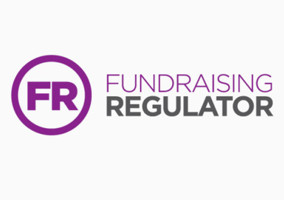The Fundraising Regulator published a report earlier this week that looks at trust in fundraising and connects it with the public’s awareness of the regulator. The role of the Fundraising Regulator: public awareness, trust and expectations also looks at how knowledge about the regulator changes levels of trust in fundraisers, with a subtle push for the sector to communicate their registration with the regulator better.
The report sets out to assess how much its existence encourages trust of fundraisers from the general public, and the report defines a fundraiser as "a person who asks for money for a charity". But with a crucial find that only 7 per cent of the 2,000 odd people it surveyed are even aware of the existence of the Fundraising Regulator, how accurately can it assess how much difference it makes to create trust in fundraisers?
Light and Shade Research, which wrote the report, used a methodology that alternates asking a question to the member of the public, then giving the answer and then asking the question again.
Once the 93 per cent admitted they had never heard of the Fundraising Regulator, a video was shown to them with the regulator's chief executive Gerald Oppenheimer saying: “We were set up to ensure that the British public, who are very generous when it comes to making donations to charities and causes they believe in, can do so with complete trust and confidence in what charities are doing.”
Just over 90 per cent then agreed that the Fundraising Regulator is important; 88 per cent thought the Code of Fundraising Practice was important too. The obvious conclusion then is that more people need to know about the regulator and what it does.
Spread the word
The gentle call from the Fundraising Regulator, on the back of this research, is for charities to help bring more knowledge about it and the code to the public.
Some 81 per cent of the surveyed public agreed that it was important that fundraisers communicate their registration with the regulator. A total of 80 per cent said they imagined a situation where they would want to check the regulator’s standards, with 56 per cent doing so to check a fundraiser was genuine, 50 per cent with a concern about general conduct and 49 per cent considering lodging a complaint.
The general argument to persuade fundraisers is that trust in them increases with the knowledge that there is regulation of the profession. The numbers are: 60 per cent gave higher trust ratings to fundraisers after they had been informed about the regulator and code; and 40 per cent of people who said they did not trust fundraisers at the beginning of the survey, said they trusted them more after knowing about the regulator and code. Moreover, 80 per cent of the people who already trusted fundraisers from the onset of the survey, said they trusted them more after they heard the information.
One third of those who had not planned to donate in the next year said they trusted fundraisers more after being told about the regulator and code. Whether this meant they now planned to donate is unclear, but the implication is that donations increase with levels of trust in fundraisers.
The report says: “It is difficult to predict that increasing trust would necessarily lead to more charitable donations overall, however the data does suggest that greater trust in fundraisers would be likely to see an increase in fundraiser donations. Although the data does not extend to linking value of donation with method, the qualitative research told us that donations via a fundraiser tended to be regular and long-term commitments, thus potentially yielding higher value donations over time.”
Is trust in fundraisers really connected to donations?
There are a whole host of reasons why people choose to donate or not donate, but trust in the person asking, and what they say, the way they say it and ultimately why they are asking will all be factors.
For the one third of non-donors who also do not trust fundraisers, we don’t know if lack of trust is the reason they don’t donate. Indeed, 63 per cent of those who do not trust fundraisers still donate to charity.
However, those who donate were more likely to say they trusted fundraisers, with the report finding that 40 per cent of those who do donate, also trust fundraisers.
It raises the question: where has the impulse or inclination to donate for the other 60 per cent come from? Surprisingly, only half of donors who had given via a fundraiser, trusted fundraisers at all.
The figure is in reverse among people who say they trust fundraisers, with 83 per cent donating. So trusting fundraisers correlates more with donating, but donating doesn’t necessarily correlate with trusting fundraisers.
Whether trusting fundraisers actually causes people to donate is open for debate – motivations for giving are often complex. This could include believing in the cause but not the fundraiser. These are higher level conversations about the existence of fundraising itself. Fundraisers know it’s often a long road to a donation, so even if trust and donations don’t match the expected correlations immediately, in the longer term higher levels of trust can only benefit fundraisers, their charities and the public who are choosing if and where to donate.
Starting a conversation
In his summary of the report, Toby Harris, chair of the Fundraising Regulator, says: “Everyone that’s involved in fundraising has an individual responsibility to maintain trust in fundraising, whether you are a trustee, a senior fundraising manager or a fundraiser speaking to the public. And because trust can be undermined by the actions of one as well as the actions of many, there is a collective responsibility for the fundraising sector to learn from each other and improve fundraising practice where necessary.”
If one of the aims of the regulator is to have the support of the public, then having an awareness level of 7 per cent is not good enough. But the report does show fundraisers how increased awareness of the regulator could make their jobs easier and encourages them to do more to raise that awareness.
But it does more than that, it’s trying to draw support from the sector too, and active support, by displaying the badge and explaining to the public what that means.
Fundraising and charity are sectors where trust has been undermined in recent years, but what can look like knee-jerk reaction and toothless policing to some, can also look like reassurance to an individual trying to decide who to believe in and where to put their money, to others.
Every report can start a conversation, but the action fundraisers and charities can take from this report is to communicate their registration better because it benefits fundraisers and their supporters too.
It’s important to note that communicating registration of the Fundraising Regulator is unlikely to be the sole factor in improving trust, but it is one tool for building meaningful relationships. Light and Shade Research says in the report that its qualitative research confirms the decision to donate can be multi-faceted, and heavily influenced for some by the charity or cause they are choosing to support. Donating is not just about the mechanism they choose to donate through.
|
Related articles












